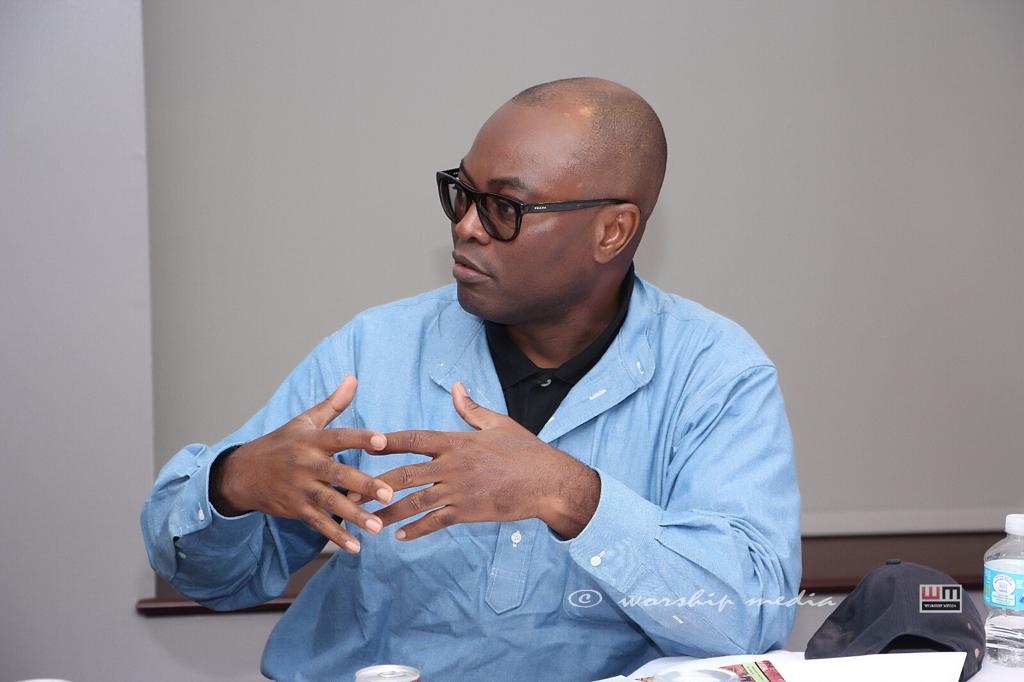I returned to Nigeria, my country of birth, only last week for a private family event. It was a unique opportunity to take another cursory look at her healthcare industry. Sadly, it remains in a state of advanced decay. As with any expectant exile, visitation is liable to evoke the classic repertoire of grief, first outlined by Elisabeth Kubler-Ross in her 1969 classic, “On Death and Dying”, through denial, anger, bargaining, depression and acceptance. This time, being of sound mind, I elect to skip the first three stages.
Most Nigerians on voluntary exile abroad, such as I now reluctantly include myself, are understandably ambivalent – even conflicted – on commenting on any of the multiple ills that afflict Nigeria. For one, there is a “survivor’s remorse”, then the need to be fair to all parties involved, and furthermore, a more debilitating desire not to appear condescending or worse, sounding off like a know-it-all in the public square. Nigeria certainly needs help, but probably not criticism; but Nigeria also needs frankness as well as honesty, above all else. The truth is that things are execrably rotten for the “average” Nigerian, epitomised by the Surulere or Maroko denizen, not those who inhabit the few oases of benign privilege across Ikoyi and Ikeja. The scandal is that the government is AWOL at all levels. The tragedy is there is no respite in sight: it will get a lot worse, before it gets any better.
Practically all public hospitals, where most of the citizenry obtain needed health services, are non-functional in real-world terms. It feels like a grudge match between government and the public: who is going to blink first? But then, my travelling companion (and trusted driver) across the wastelands of the Niger confluence promptly reminds me that it is not just healthcare, but everything else including public universities, utility companies, security services, judiciary – indeed, everyone beside elected government officials – have become vast constituencies of industrial unrest. Emergency medical services are either nonexistent or vestigial: an acute asthmatic attack, an automobile accident, a deep vein clot, an unheralded heart attack, a stroke, even premature onset of labour could signal immediate death with no recourse to competent clinical intervention. Once again, you sense that life in Nigeria is walking on a tightrope of barely concealed desperation. This huge country is still massively haemorrhaging medical talent, as the country’s “best and brightest” seek greener pastures overseas. Remarkably, the concept of “overseas” now includes Ghana, Kenya, Botswana and South Africa, in addition to the “old reliables” of Western Europe, Australasia and the Americas. I am told that the Minister of Labour believes the unrelenting out-migration of doctors can only be a portent of great things to come.
Reliable statistics are hard to come by in Nigeria, but it appears we faithfully inhabit the lowest rungs of each index of living. Infant mortality rate, a perennial indicator in international circles, is about 70 per 1000 live births, ensuring we remain comfortably ensconced in the “worst 10 countries” list. So far, there is scant evidence anyone in authority is doing anything about it- or is actually aware of this. Effective drug therapies are nearly impossible to come by, and where available are either not within reach of the limited purchasing power of Joe Q Citizen, of dubious efficacy (preservation of biological agents being especially challenging without cold chains or reliable storage facilities) or unverified derivation (as most drugs, sourced through an international “black market”, are likely adulterated or fake). Worse, absent diagnostic labs and imaging facilities mean that most treatable illnesses will be predictably missed. There is an amusing anecdote relayed by an old classmate, that in the face of diminishing diagnostic options, all febrile pathology is first assumed to be malaria, and when treatment is futile, typhoid serves as alternate diagnosis, with reflexive (and often inappropriate) treatment based on nothing more than the disreputable Widal test.
To underline the long discursive history of a near-universal recourse to medicine-by-hunch in my country of birth, as far back as 1976, my good friend and late mentor, Dr Benjamin O. Osuntokun, doyen of physics amongst his generation and well beyond, had somewhat whimsically declared that “the most common cause of an acute sickle cell crisis in Nigeria is a chloroquine-responsive febrile illness.” The cognoscenti would immediately recognize that chloroquine, being an anti-inflammatory agent above all else, is liable to still a raging fever, without necessarily challenging its underlying (infectious) origins or purporting to alter the infective course of (chloroquine-resistant) malaria. Interestingly, despite the pandemic spread of COVID, it is often not considered as a viable diagnosis, even when its tell-tale clues abound. Ditto for other viral infections, again reflecting the paucity of diagnostic serologies. Now, as in antiquity, the vast majority of patients cast their lot with faith healers, proprietary medicine stores, shamans (or mystic medicine men) and other charlatans who dot the unforgiving landscape. There is still a huge “black market” for alternative medicines, which covers every known (and unknown) ailment and are all uniformly ineffective or harmful. Yet, Nigerians as resilient as ever, soldier on, stoutly refusing to hold their elected leaders responsible for this remarkable state of suspended animation.
The statistics are damning: life expectancy is 55-61 years (as with most things Nigeriana, it depends on whom you ask), and has been steadily dropping over the past decade. Healthcare expenditure, based on the 2022 federal budget, is a measly $5 per capita, of which at least 50 percent will end up in private pockets. An estimated nine percent (9%) of global HIV-AIDS burden is domiciled in Nigeria. Amidst the burgeoning health crisis, the official government response has been: Crickets! As of today, despite billions in local currency voted for the presidency clinic at Aso Rock, the president receives most or all of his routine medical care in far-away London. With the exception of Mr Abba Kyari, formerly Chief of Staff to the president (unfortunately, one of the very first local victims of the COVID pandemic), it is practically de rigueur within Nigerian officialdom to die of eminently treatable tropical diseases overseas, where there is scant expertise or interest in “exotic” illnesses. A long-serving federal senator is presently awaiting His Majesty’s pleasure in prison custody in London for attempting to bring in a young, allegedly homeless, “organ spare parts” supplier who had agreed to donate a kidney to his ailing daughter, before the Fates shat on him. As I am sure his lawyers would have educated him by now, in cases of alleged human trafficking, consent of the trafficked individual is not a defence. The obvious tragedy is that all these man-made problems could have been largely prevented if the government had invested in just 2 (two!) fully-equipped district-level General Hospitals in this massive country of 200 million-plus citizens. But in the cesspool of career politics, as HL Mencken reminds us, each man must first learn to rise above principles.
Perhaps the most amazing thing about Nigeria is that despite all the clear indications of encroaching anomie – insecurity, kidnappings, the longest ASUU strike in recorded history with all public universities shuttered, secessionist agitations, religious extremism, Boko Haram, lack of basic infrastructure, mind-blowing inflationary pressures, endemic corruption, everything – the majority of citizens make out time to daily assail one another over the internet as they argue over which of their presidential hopefuls is the least incapable. Nobody here cares for excellence, and nobody seems to care about the day-after-tomorrow either. It is all about “making it” until it is your turn.
The political parties have repeatedly failed to enact appropriate leadership recruitment protocols, and each electoral cycle brings forth a decrescendo harvest of contestants. The political landscape is dominated by two ideologically similar parties, the APC, which is clearly a party of bad ideas, and the PDP, which is the party of no ideas. One is represented by a dissolute patrician politician, long past his “sell-by” date but still lusting for his last hurrah on the rather dubious premise that “it is [his] turn” to be president, and the other party is fronted by a ritzy, somewhat controversial, serial gladiator, who has relentlessly sought this plum job over six electoral cycles and counting. Neither is fatally compromised, but none evokes the sort of creature confidence that times like this demand.
Lately, a third political grouping has broken into the public consciousness, the Labour Party, led by perhaps, the most plausible presidential candidate of them all, a youngish, peripatetic, gravelly-voiced businessman and ex-governor from the South-East, whose political track-record is rather meagre in comparison to his more practised opponents, but who clearly speaks in the syntax of change, and to the aspirations of a younger generation. Despite his obvious advantages, he is still unlikely to win the big prize, because as with all representative democratic politics, demography is destiny.
Regardless of who becomes president in 2023, for this country to survive – talk less of prosper – all hands must be on deck to rescue her from a tailspin of endless crisis and needless conflagration. The traditional walls of froideur between elected leaders and the led must be demolished, basic healthcare should be guaranteed, the judiciary ought to be strengthened, and the exorbitant legislature pruned as a paean to commonsense.
In Newtonian physics, as in politics, action begets reaction, overreach triggers backlash, impunity foments insurrection. Sooner or later, the ill-served citizenry of my country of birth will forge a new political consensus, devoid of the tribal and religious allegiances of the chequered past. Only then, finally, will Nigeria stand a chance of attaining her true potential as an independent country where, in the immortal words of her founding fathers, no man is oppressed. Until then, we remain condemned to repeated cycles of disappointment, poor outcomes, bad ideas, reflexive superstition and loads of nonsense.
Dr. Azubeze Adogu





